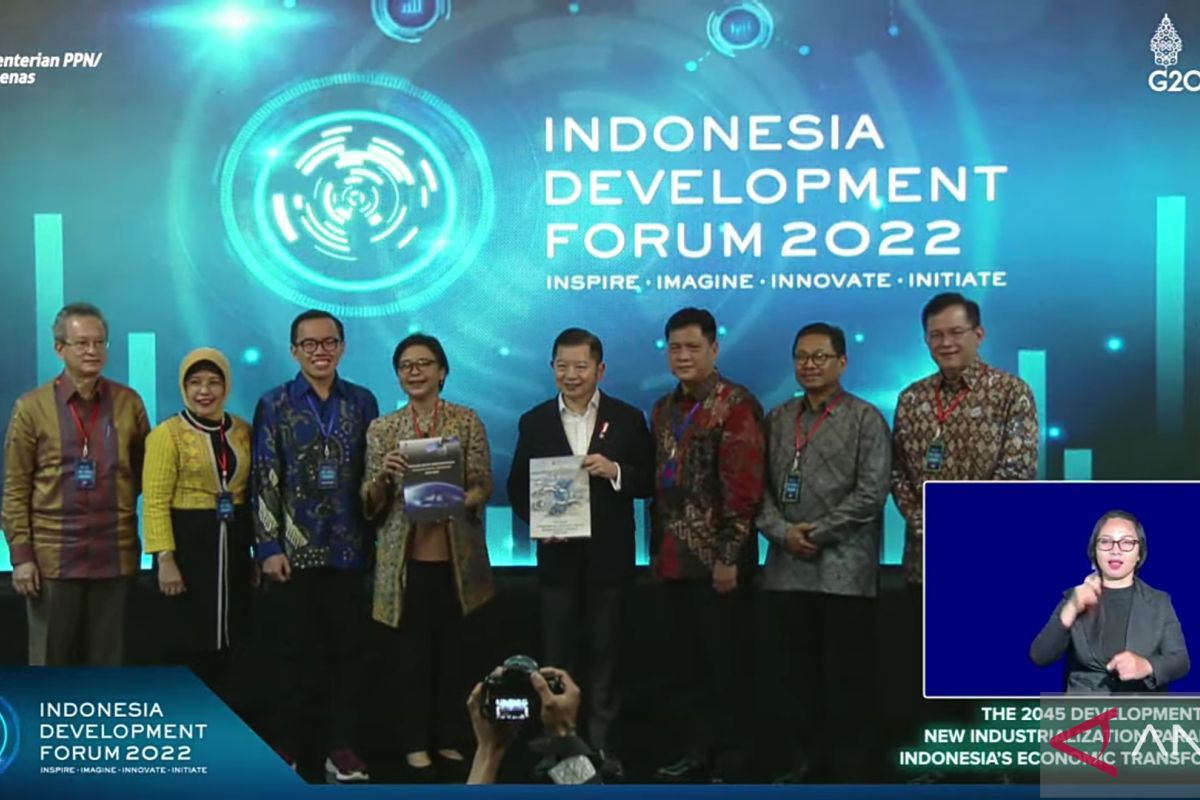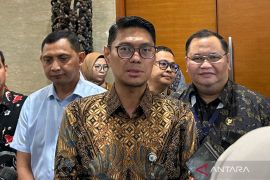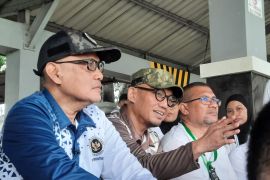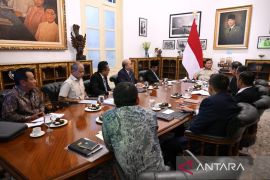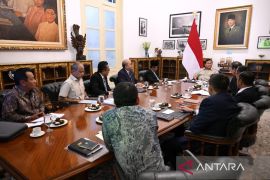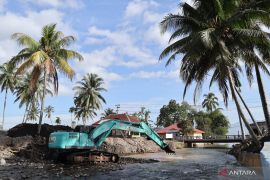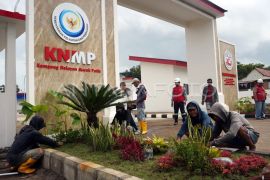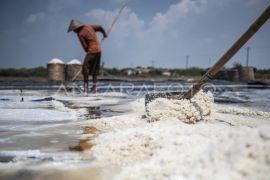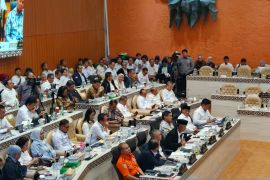A strong ecosystem must be supported by all stakeholdersJakarta (ANTARA) - The National Development Planning (PPN) Ministry on Monday released the 2022–2045 Aerospace Industry Ecosystem Development Road Map as part of an effort to create a resilient and globally competitive industry.
"The aerospace industry road map is needed to create a resilient and competitive industry toward (realizing the) Golden Indonesia 2045 (vision),” PPN Minister Suharso Monoarfa said at the Indonesia Development Forum (IDF) 2022 here on Monday.
The document includes several targets that the nation's aerospace industry is aiming to achieve by 2045, such as making Indonesia a manufacturer of turboprop type aircraft with a capacity of fewer than 100 seats and equipped with the latest technology, a manufacturer of large cargo drones with a capacity of two tons, and the main producer of flight simulators.
Other targets outlined in the road map include doubling the value of the domestic component level (TKDN) of aircraft components, becoming part of Tier 1 Global Aerostructure, increasing market share to 2 percent of the global supply chain of the aircraft component industry, and achieving a surplus in components trade.
Related news: BI launches books on manufacturing, tourism development amid pandemic
Indonesia is also aiming for its aerospace industry to achieve maintenance, repair, and overhaul (MRO) service absorption of US$2 billion by 2045.
Moreover, in terms of aviation services, Indonesia is targeting to connect 263 cities in the country and 135 cities abroad with high safety and service standards and increase the number of aircraft, passenger, and cargo traffic by 3 to 4 times by 2045.
Under the road map, the industry will be developed in several phases, with the focus in 2022–2024 on strengthening consolidation, 2025–2029 on increasing capacity and strategic partnerships, 2030–2034 on increasing commercialization, 2035–2039 on strengthening innovation, and 2040–2045 on sustainable growth and competitiveness.
According to the minister, a strong ecosystem is needed to develop a resilient and globally competitive industry.
Related news: Industry absorbs 70 percent of tourism polytechnic graduates: Minister
"A strong ecosystem must be supported by all stakeholders," he said.
According to the road map, the stakeholders that must support the ecosystem are the government, industry associations, educational and training institutions, certification institutions, and research ecosystems.
In addition, the aircraft component industry, the maintenance, repair, and overhaul (MRO) industry, airline operators, and airports must also support the ecosystem.
Related news: Bappenas unveils document to support digital transformation
Related news: Ministry supports downstreaming of Buton asphalt industry
Translator: Muhammad Heriyanto, Raka Adji
Editor: Fardah Assegaf
Copyright © ANTARA 2022
